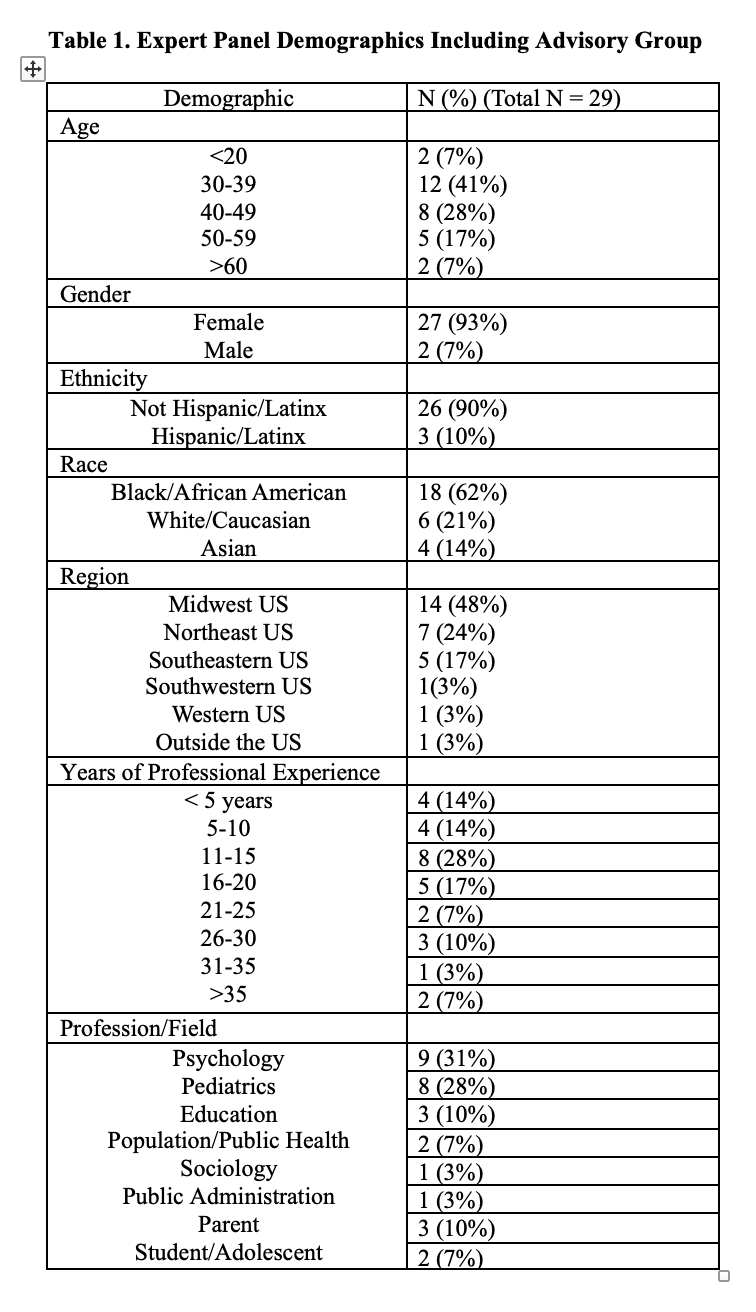Health Equity/Social Determinants of Health
Session: Health Equity/Social Determinants of Health 4
259 - Principles to Guide Conversations About Rac(ism) in Pediatric Clinical Settings: A Delphi Process
Saturday, May 4, 2024
3:30 PM - 6:00 PM ET
Poster Number: 259
Publication Number: 259.1374
Publication Number: 259.1374

Mehek Bapna (she/her/hers)
Research Fellow
Ann & Robert H. Lurie Children's Hospital of Chicago
New York, New York, United States
Presenting Author(s)
Background: Racism is a major public health issue that is at the root of health disparities affecting minoritized children and adolescents. Despite this, there has been little guidance on how pediatricians should approach conversations about racism in the healthcare setting. The association between racism and adverse emotional, mental, and physical health has been well documented among children and adolescents. The negative impact of racism on health can be mitigated by creating positive racial identities. Positive racial identities can be created through conversations about race and racism. Therefore, pediatricians are well-positioned to support families in recognizing and intervening on the negative effects of racism on health by having conversations about race and racism in the health care setting.
Objective: The objective of this study, was to develop expert consensus recommendations for conversations about race and racism with children and families in the health care setting.
Design/Methods: We conducted a modified Delphi panel study between August 2021 and February 2022. Three iterative surveys were completed by content area experts and were analyzed, summarized and presented back for review and feedback on areas of consensus and disagreement. We used constant comparative methodology to analyze the first survey and quantitative measures of agreement for the expert panel were calculated for the second and third surveys using interquartile ranges, Kendall’s W, and percent agreement.
Results: The final panel (n=29) included pediatricians, educators, and psychologists. Themes that met consensus were categorized as occurring before, during, or after clinical conversations. Before entering conversations, pediatricians should have appropriate knowledge about the history of racism, awareness of their own biases and privilege, and should be able to seek out relevant resources for anti-racism and anti-bias education. During conversations about racism, pediatricians should actively listen and display adaptive learning. After conversations, the effects may include short- and long-term benefits, however, harm could also be done by not having conversations appropriately. Important themes that met consensus also addressed impediments to having these conversations.
Conclusion(s): To our knowledge, this study provides the first expert consensus recommendations for pediatricians to have conversations with children and families in clinical settings about race and racism. Pediatricians can use these consensus themes as actionable guidance to support effective communication around racism and health.

